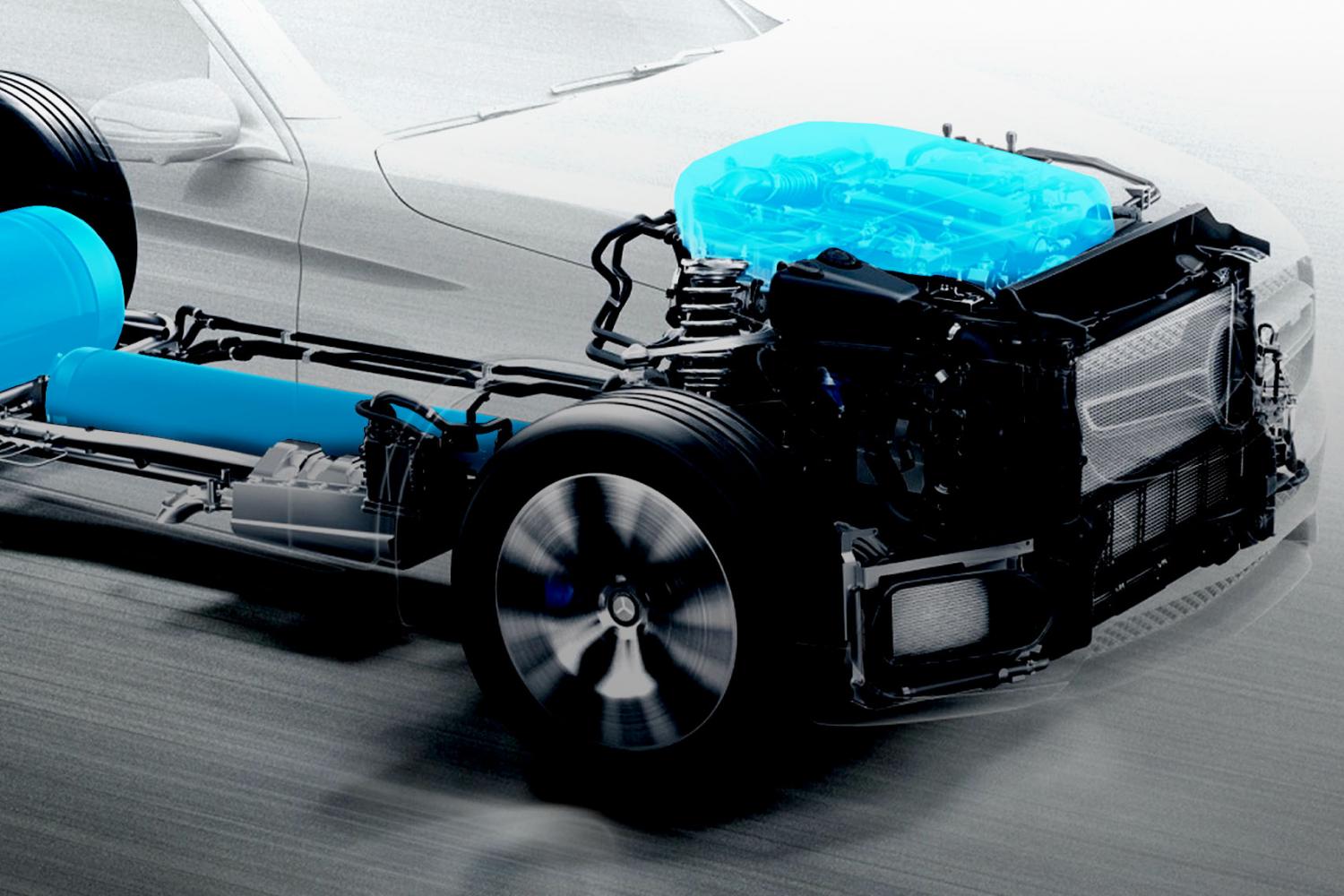
The world is awash in oil as a consequence of the COVID-19 crisis and global economic crash. The ripple effect is seen in lower prices for gasoline, which could dampen enthusiasm for electric vehicles. That may be so temporarily. However, the auto industry is still barreling towards an electric future. In the latest development, a new joint venture between Volvo Group and Daimler Truck AG indicates that hydrogen fuel cell vehicles could play a larger role than previously thought.
The long road to hydrogen fuel cell vehicles
Auto makers have struggled with hydrogen fuel cell technology for decades. GE first applied a fuel cell to a car in the 1950’s, but it wasn’t until 2013 that Hyundai introduced the first mass-produced, commercially available fuel cell car.
Multiple other companies soon followed suit with versions of their own, but hydrogen-powered cars have yet to gain traction with the motoring public.
One problem is the fuel itself. Fuel cell cars are zero-emission vehicles that produce electricity from hydrogen through a chemical reaction. That sounds green enough, but the primary source for hydrogen today is fossil natural gas. That’s a turn-off for drivers and fleet managers who prioritize sustainability and renewable energy.
The hydrogen fuel cell truck solution
Fortunately, the sustainability issue is beginning to resolve itself. The hydrogen supply chain is gradually transitioning to green hydrogen from water, produced with renewable energy.
That still leaves two challenges: high up-front costs and a shortage of fueling stations.
Those factors can discourage individual consumers. However, fleet managers have a different perspective. As a counterbalance to higher costs, fuel cell trucks have two major logistical advantages over battery trucks. They can pack longer range into a smaller, lighter space, and they fuel up just as quickly as petroleum-powered vehicles.
Because of their longer range, fuel cell trucks also do not require a high degree of penetration for fueling stations. Fleet managers can plan routes and schedules around the few stations that are available. Plans are under way to build out the fueling network in the European Union, the U.S. and other key regions.
A giant step for fuel cell vehicles
Interest in fuel cell trucks and other heavy-duty vehicles has been ticking up in recent years. Last week’s move by Volvo and Daimler picked up the pace significantly.
On April 21, the two companies announced a new joint venture to develop a line of heavy-duty fuel vehicles. Volvo is putting up cash for a 50 percent stake in the new company, which will consolidate all of Daimler’s existing fuel cell activities. That includes 20 years of experience through the company’s Mercedes-Benz unit.
“For trucks to cope with heavy loads and long distances, fuel cells are one important answer,” explained Daimler Board Chairman Martin Daum.
Volvo President and CEO Martin Lundstedt emphasized that the business will pivot on the use of hydrogen from renewable resources or “green electricity,” in accord with efforts to achieve a carbon neutral economy.
The two companies anticipate that the new joint venture will begin mass producing long-haul fuel cell trucks and buses within about five or six years.
Other types of vehicles may also be added to the plan.
Batteries versus fuel cells
The formation of the new joint venture indicates that fuel cells and batteries are not necessarily competing technologies. Auto makers that deploy both technologies strategically may be in a stronger position to broaden their customer base, embrace more use cases, and accelerate the zero-emission transportation trend.
As if to underscore that point, Volvo also recently passed an important milestone in its battery electric vehicle program.
On March 5, the Volvo officially commissioned its new battery assembly line in Ghent, Belgium, putting the company on track to begin building its first 100 percent battery electric car this year.
Another example of this strategic approach to electrification is the U.S. startup Nikola. The company first launched with a focus on long haul fuel cell trucks. Last fall, it added new battery technology for lighter vehicles, too.
Image credit: Mercedes-Benz

Tina writes frequently for TriplePundit and other websites, with a focus on military, government and corporate sustainability, clean tech research and emerging energy technologies. She is a former Deputy Director of Public Affairs of the New York City Department of Environmental Protection, and author of books and articles on recycling and other conservation themes.














